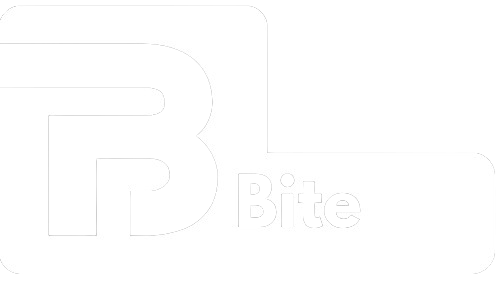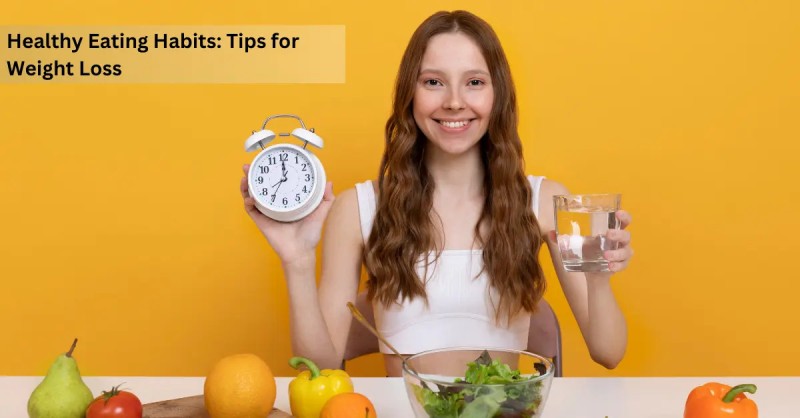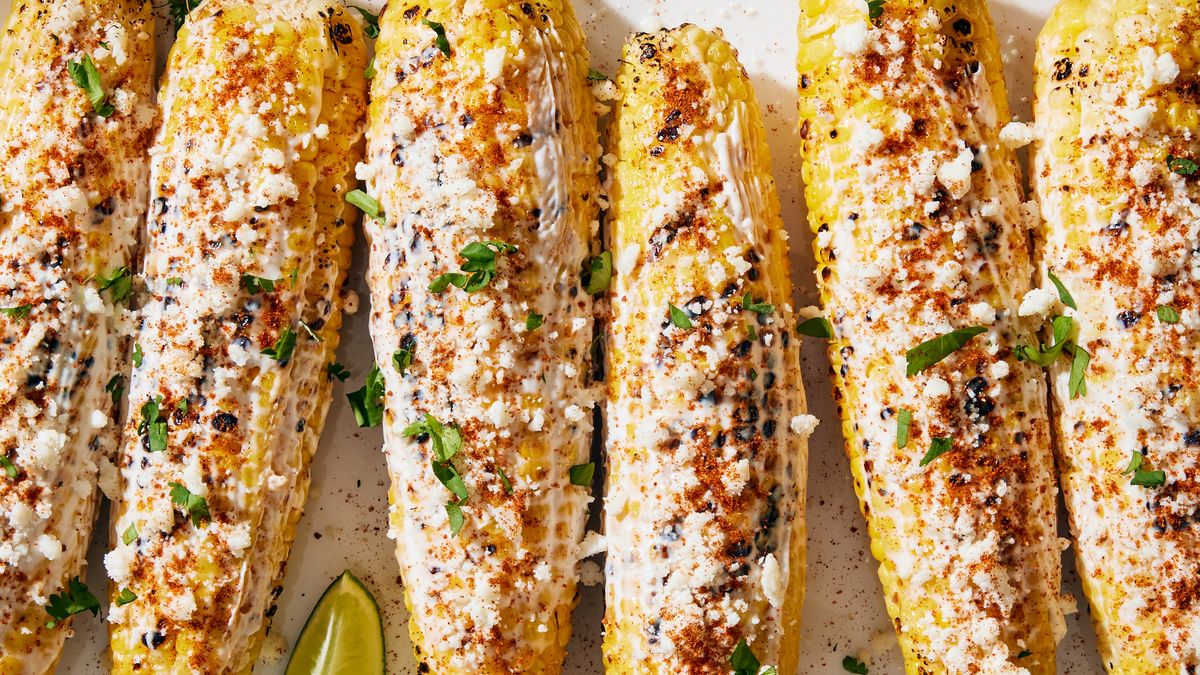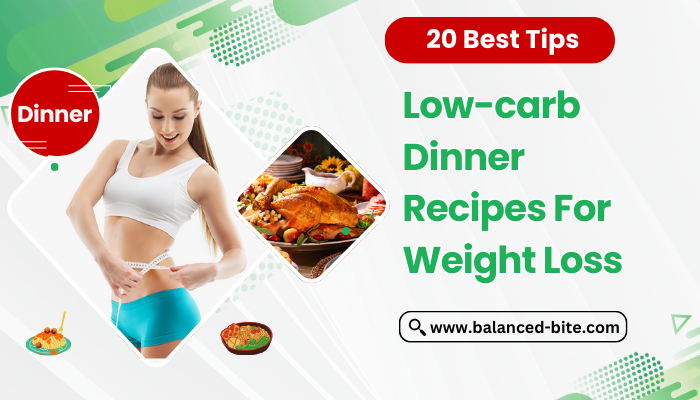Healthy Eating Tips: These eight useful suggestions will assist you in making healthier decisions and cover the fundamentals of eating well.Eating the appropriate number of calories for your level of activity is the key to a healthy diet because it allows you to balance the energy you take in and the energy you expend.You will gain weight if you consume more food or liquids than your body requires since the extra energy is stored as fat. You will lose weight if you consume too little food and liquids.To ensure that your diet is balanced and that your body is getting all the nutrients it needs, you should also eat a variety of foods.Men should consume around 2,500 calories (10,500 kilojoules) each day. A woman should consume about 2,000 calories (or 8,400 kilojoules) each day.The majority of folks in the UK should be eating less calories since they are consuming more than they require.
8 Must-Follow Healthy Eating Tips for Weight Loss
1. Start your meals with starchy, higher-fiber carbohydrates?
A little more than one-third of your diet should consist of starchy carbs. Potatoes, bread, rice, pasta, and cereals are among them.Select wholegrain or higher-fiber options, such as potatoes with their skins on, brown rice, or wholewheat pasta.They might keep you feeling fuller for longer since they have more fiber than refined or white starchy carbs.With every big meal, try to incorporate at least one starchy food. Although starchy meals are thought to be fattening, the amount of carbohydrates they contain, gram for gram, only offers half the calories of fat.When you make or serve these kinds of meals, pay attention to the fats you add—oil on chips, butter on bread, and creamy sauces on pasta, for example—because that's what raises the calorie level.
2. Eat a lot of vegetables and fruit?
It is advised that you consume five servings or more of a varied diet each day. They can be juiced, dried, frozen, canned, or fresh.It is not as hard as it seems to get your five a day. Consider slicing a banana on top of your cereal for breakfast or replacing your typical mid-morning snack with some fresh fruit.Eighty grams is a portion of fresh, frozen, or canned fruit and vegetables. 30g of dried fruit is a portion, which is best consumed during mealtimes.A 150ml glass of fruit or vegetable juice, smoothie, or both counts as one serving; however, since these beverages are high in sugar and might harm your teeth, keep your intake to no more than one glass per day.
Read also: 10 Tips For Making The Perfect Cobbler For Two
3. Increase your fish intake, especially a piece of oily fish.
Fish is high in vitamins and minerals and a wonderful source of protein.Try to have two servings of fish every week, one of which should be oily.Omega-3 fats, which are abundant in oily fish, may help stave off heart disease.Losing weight is a slow process, so if the pounds do not come off as quickly as one had hoped, one may become disheartened.Adhering to a weight reduction or maintenance program will involve some days that are more difficult than others. For a weight-loss program to be effective, the participant must stick with it and not give up when making changes to their behavior appears too hard.It may be necessary for some people to reset their objectives, either by modifying their exercise regimen or the overall number of calories they intend to consume.Maintaining a positive mindset and perseveringly attempting to overcome obstacles to effective weight reduction are crucial.
4. Reduce your intake of sugar and saturated fat?
fat that is saturated
You should include some fat in your diet, but you should be mindful of the kind and quantity that you consume.Saturated and unsaturated fats are the two primary categories. An excessive amount of saturated fat raises blood cholesterol levels, which raises the risk of heart disease.Men should consume no more than 30g of saturated fat per day on average. Women should consume no more than 20g of saturated fat per day on average.Although children under the age of five should not have a low-fat diet, children under the age of eleven should consume less saturated fat than adults. Furthermore, it is advised to consume full-fat dairy products up to the age of two years old, including cheese, fromage frais, and yoghurt.Numerous environmental and social stimuli may promote overindulgent eating. For instance, some people are more prone to overindulge in food when they watch TV. Some find it difficult to hand over a dish of candies to another person without nibbling themselves.People can come up with strategies to modify their routine to reduce these triggers by being conscious of what could make them want to nibble on empty calories.

Sweetener
Consuming sugar-rich meals and beverages on a regular basis raises your risk of dental decay and obesity.Sugary foods and beverages have a lot of energy, which is expressed in calories or kilojoules, and consuming them too frequently can lead to weight gain. Moreover, they may lead to dental deterioration, particularly if consumed in between meals.Any added sugars to food or beverages, as well as natural sugars found in honey, syrups, and unsweetened fruit juices and smoothies, are referred to as free sugars.Rather than the sugar in fruit and milk, this is the kind of sugar you should be consuming less of.A surprising number of foods and beverages that are packaged have high levels of free sugars.
Numerous foods contain free sugars, including:
- sugar-filled carbonated beverages
- sugar-filled cereal for breakfast
- cakes
- pastries, puddings, and biscuits
- sweets and alcoholic beverages with chocolate
A food item is considered high in sugar if it contains more than 22.5g of total sugar per 100g, and low in sugar if it contains 5g or less.Learn how to reduce the amount of sugar in your diet.
Read also: How To Make The Perfect Savory Party Bread Recipe
5. Consume no more than 6 grams of salt every day for adults.
Blood pressure might increase if you eat too much salt. High blood pressure increases the risk of heart disease and stroke in individuals.You can be consuming too much food even if you don't add salt to it.A significant portion of the salt that we consume is pre-packaged in foods like breads, sauces, soups, and cereals.Utilize food labels as a means of reduction. A food is considered high in salt if it contains more than 1.5g per 100g.A teaspoonful of salt, or 6g, is the maximum amount that adults and kids 11 years of age and older should consume each day. Even less should be provided for younger kids.You'll lose more weight if you stock your kitchen with items that are low in calories and make organized meal plans.Those who want to lose weight or maintain it off should purge processed and junk food from their kitchen and make sure they always have the components needed to prepare quick and wholesome meals. By doing this, thoughtless, hurried, and unplanned eating may be avoided.Making meal plans in advance of attending social gatherings or dining establishments may also facilitate the process.
6. Start moving and maintain a healthy weight?
Exercise on a regular basis can help lower your chance of developing significant health disorders in addition to consuming a healthy diet. It's crucial for your general health and wellbeing as well.Learn more about the advantages of physical activity and adult requirements for physical activity.Obesity and excess weight have been linked to heart disease, stroke, type 2 diabetes, and several types of cancer. Your health might also be impacted by being underweight.Most individuals need to cut their calorie intake in order to lose weight.Be more active and reduce your intake of food if you're wanting to lose weight. You may stay at a healthy weight by eating a balanced, healthful diet.Use the BMI healthy weight calculator to see if your weight is healthy.The NHS weight reduction plan is a 12-week weight loss program that mixes recommendations for increased physical activity and better diet.See underweight adults if you are underweight. See your doctor or a dietician for guidance if you're concerned about your weight.
7. Avoid feeling thirsty?
Consuming a sufficient amount of water is necessary to prevent dehydration. It is advised by the government to consume six to eight cups daily. This is on top of the fluids you get from your diet.All non-alcoholic beverages are acceptable, but the healthiest options include water, milk with less fat, and drinks with less sugar, including tea and coffee.Avoid sugar-filled soft drinks and carbonated drinks as they are heavy in calories. They harm your teeth as well.Smoothies and unsweetened fruit juices are also heavy in free sugar.You shouldn't have more than 150ml (a tiny glass) of fruit, vegetable, or smoothie juice in total per day.Recall to stay hydrated whether exercising or in hot temperatures.
8. Never forgo breakfast?
Some people believe skipping breakfast may aid in their weight loss.However, a nutritious breakfast that is low in fat, sugar, and salt and high in fiber may be a component of a balanced diet and help you obtain the nutrients you require for optimal health.Breakfast made with sliced fruit on top of semi-skimmed milk and wholegrain reduced sugar cereal tastes good and is healthy.It is feasible to get hundreds of calories each day from tea, juice, soda with added sugar, or alcohol. These are referred to as "empty calories" as they add more energy content without improving nutrition.A person should try to limit their intake to water or unsweetened tea and coffee, unless they are using smoothies as a meal substitute. A squeeze of fresh orange or lemon may add taste to water.Refrain from confusing dehydration with hunger. A glass of water can frequently quench one's appetite between meals that are scheduled.
FAQs
What is healthy eating for weight loss
places a focus on whole grains, fruits, vegetables, and low-fat or fat-free milk and milk products. comprises a range of meals high in protein. Seafood, lean meats and poultry, eggs, legumes (beans and peas), soy products, almonds, and seeds are all healthy selections.
How can I lose weight in 7 days naturally
You may lose weight in 7 days by consuming fewer processed meals and extra sugars. Increasing your intake of fiber-rich foods and lots of water may also be beneficial. Nevertheless, a variety of variables affect weight loss, so it's advisable to aim for a slower, more sustainable weight reduction of 0.5–2 pounds each week.
The 20 Most Weight-Loss-Friendly Foods on The Planet
- Whole Eggs. Once feared for being high in cholesterol, whole eggs have been making a comeback. ...
- Leafy Greens. ...
- Salmon. ...
- Cruciferous Vegetables. ...
- Lean Beef and Chicken Breast. ...
- Boiled Potatoes. ...
- Tuna. ...
- Beans and Legumes.
How to reduce belly fat without exercise
In a similar vein, no particular diet can effectively burn belly fat. Nonetheless, adhering to a nutritious diet might be beneficial. Usually, this means eating soluble fiber-rich foods including fruits, vegetables, legumes, oats, and barley. Additionally, one can eat meals strong in protein, such beans, lean meat, and fish.










